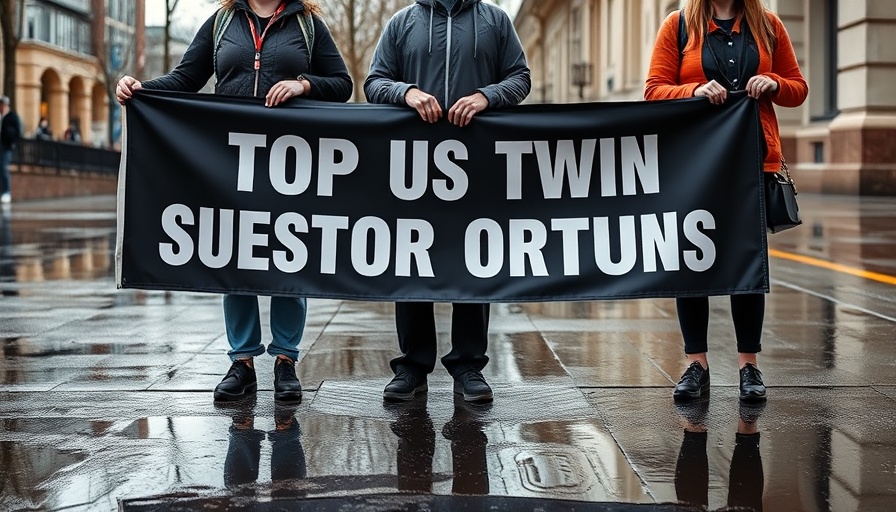
A Bold Call from Harvard Law Students on Potential Divestment
In a decisive move, Harvard Law School students have expressed their demand for the university to divest from Israel-related investments, a stance that has stirred a fresh wave of controversy amidst ongoing global tensions. The students voted overwhelmingly in favor of a referendum that urges the university's $53 billion endowment to sever ties with companies involved in military and surveillance activities related to Israel. This initiative not only spotlights the potential for financial implications but also reflects a growing sentiment among students willing to advocate for international humanitarian law.
The Context Behind the Movement
The referendum, which received 72.7% of the student votes, was categorized by many as a symbolic gesture that holds significant implications in today’s socio-political climate. The passing of this resolution comes at a time when both national and global protests regarding human rights in Israel and Palestine are intensifying. Harvard’s administration, which has historically resisted calls for divestment, voiced discontent with the vote’s framing, viewing it as counterproductive to fostering unity within the student body.
The Implications of Divestment Advocacy
This push for divestment has ignited discussions about the broader role educational institutions play in political activism. Critics of the referendum argue that calling for divestment from Israel could alienate students and foster divisive sentiments within the campus community. On the other hand, proponents maintain that financial decisions are ethical questions as well. "Investing in companies that support military actions undermines our educational values," stated an organizer from the group leading the movement.
Future Outlook: Will Harvard Respond?
While the student vote marked a significant moment in campus activism, it remains uncertain how Harvard will react. Historically, previous administrations have undermined similar movements, emphasizing financial stability over political debates. The cumulative demands from various schools within Harvard for divestment add pressure on the administration but finding common ground between opposing viewpoints within the community remains a complex challenge.
This issue ties into broader themes across universities in the U.S. where discussions about ethical investments and the responsibility of institutions to the communities they exist in continues to evolve. Should Harvard ultimately decide against divestment, it could indicate a troubling trend for student agency in institutional financial decisions.
Encouraging Dialogue and Diverse Perspectives
Participants in the dialogue around divestment must consider the rich tapestry of opinions—from those advocating for perceptible change regarding how institutions align their financial strategies with human rights to those advocating for diplomatic resolutions without the disruption of institutional allegiances. The challenge ahead is immense but necessary, as universities like Harvard grapple with their legacies and future directions in political activism.
As the conversation continues to evolve, it’s essential for students, faculty, and alumni to foster inclusive discussions without sacrificially sidelining perspectives. After all, partnerships built on mutual respect and understanding might offer the solutions we all seek.
In watching how these events unfold, business professionals should keep their eyes on how institutions like Harvard navigate these social movements, as they could inevitably impact future institutional funding, corporate partnerships, and even employment trends. Adaptability in the face of dynamic student voices will likely define the trajectory of both the university and businesses aligned with similar values.
 Add Row
Add Row  Add
Add 



Write A Comment